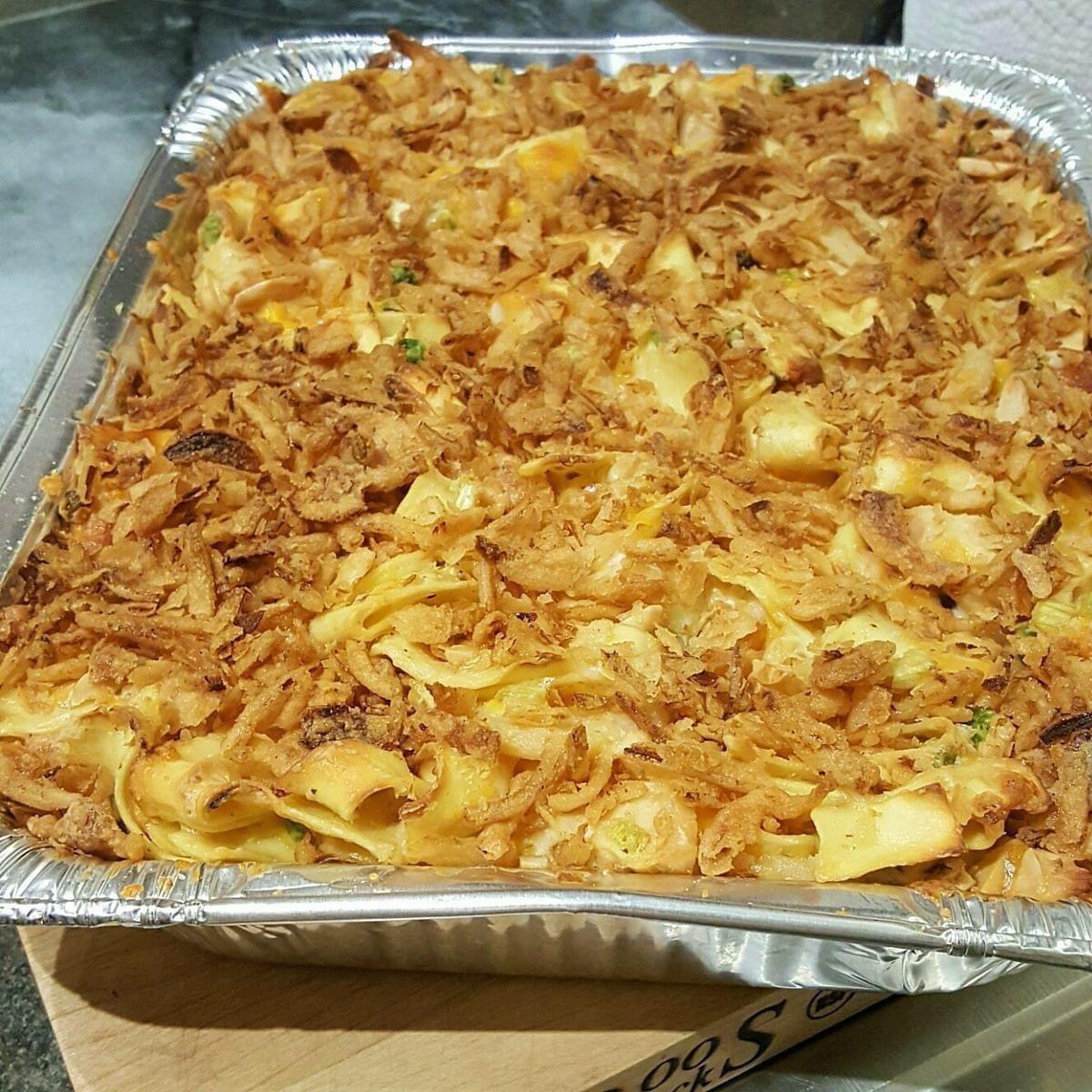Chicken Wings with Potatoes

Revised English Text:
Ingredients
1 kg chicken wings
400 g potatoes
100 g onions
Salt
Olive oil
1 small glass of white wine
100 ml chicken or vegetable stock
Freshly ground black pepper
Chopped fresh herbs (such as thyme or rosemary) for garnish
Garlic cloves, minced (optional)
Lemon zest for extra flavor (optional)
Chili flakes for a spicy kick (optional)
Soy sauce for an Asian twist (optional)
Honey for sweetness (optional)
Preparation
1. Wash, peel, and slice the potatoes.
2. Heat olive oil in a pan and sauté the sliced onions until translucent. Add minced garlic cloves for extra flavor if desired. Season with salt, freshly ground black pepper, and chopped fresh herbs. For a spicy kick, sprinkle in chili flakes or drizzle with soy sauce for an Asian twist.
3. Arrange the potato slices in the pan, followed by the chicken wings on top.
4. Pour white wine and chicken or vegetable stock over the chicken and potatoes. Add a hint of lemon zest for an additional burst of flavor if desired, or drizzle with honey for sweetness.
5. Drizzle with additional olive oil and sprinkle with salt.
6. Bake in a preheated oven at 190-200°C for about 30 minutes, or until the chicken is cooked through and the potatoes are tender.
7. Garnish with more chopped fresh herbs and lemon zest before serving. Adjust seasoning if necessary.
The concept of history as a formalized study of past events and human societies dates back to ancient civilizations. Early historical records were often religious or mythological in nature, blending facts with legends. Ancient civilizations like the Egyptians, Mesopotamians, Greeks, and Romans documented their histories through inscriptions, monuments, and literary works.
One of the earliest known historical texts is the Sumerian King List, dating back to around 2100 BCE, which records the reigns of kings and legendary figures. The ancient Greek historian Herodotus is often referred to as the “Father of History” for his work “Histories,” written in the 5th century BCE, which chronicled the Greco-Persian Wars and explored the cultures and customs of various peoples.
Throughout the Middle Ages, historical writing continued, often focusing on religious themes and interpretations of divine providence. The Renaissance witnessed a revival of interest in classical works and a shift towards more critical and secular historical scholarship. This period saw the emergence of figures like Niccolò Machiavelli and Leonardo Bruni, who contributed to the development of modern historiography.
The Enlightenment further transformed historical study by emphasizing rational inquiry, empirical evidence, and the use of primary sources. Historians such as Edward Gibbon, known for his monumental work “The History of the Decline and Fall of the Roman Empire,” applied critical analysis to historical events and sought to understand the underlying causes of societal change.
In the 19th and 20th centuries, history evolved into a professionalized academic discipline, with the establishment of universities and research institutions dedicated to its study. Historical methodologies expanded to include social, economic, and cultural history, along with a greater emphasis on interdisciplinary approaches.
Today, history remains a vibrant field of inquiry, encompassing diverse perspectives and methodologies. Historians continue to explore the complexities of the past, uncovering new sources, challenging old narratives, and contributing to our understanding of human societies and their development over time.


